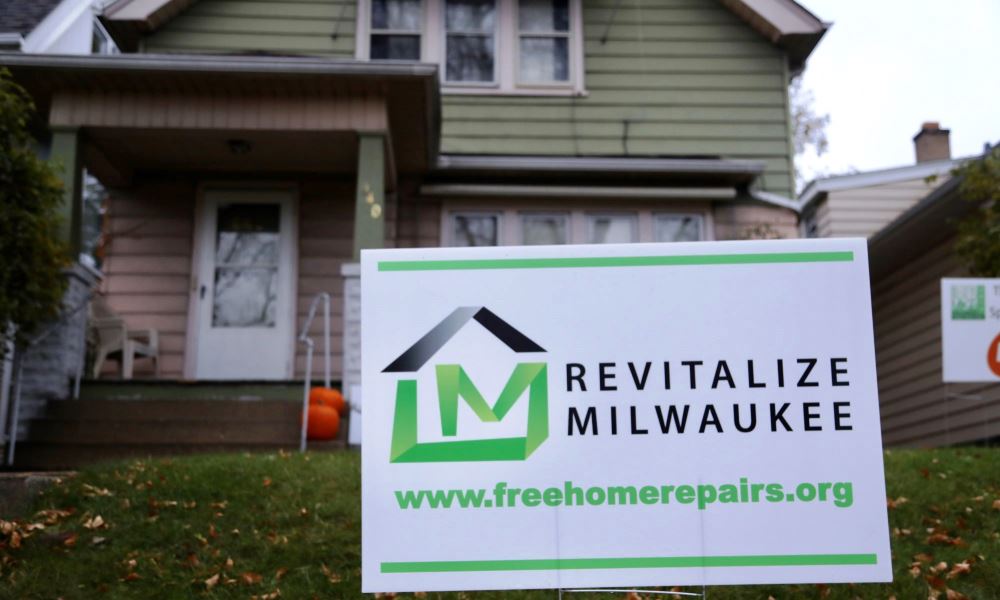A key element in many downtown and neighborhood revitalization and preservation initiatives is affordable housing that enables residents—especially veterans, the disabled and seniors—to remain in their homes.
On August 6, 2021, the U.S. Department of Housing and Urban Development (HUD) awarded $1 million to Revitalize Milwaukee, a non-profit organization that revitalizes both neighborhoods and individual lives by providing free home renovations and repairs.
Revitalize Milwaukee was just one of the 32 nonprofit organizations, state and local governments, and public housing authorities that shared $30 million from HUD.
The funding is designed to assist in undertaking comprehensive programs that make safety and functional home renovations and limited repairs to meet the needs of low-income elderly homeowners that allow them to age in place.
“There is a strong connection between health and housing,” said Matthew Ammon, Director of HUD’s Office of Lead Hazard Control and Healthy Homes.
“These grants provide a critical resource to communities to make low-cost, low barrier, high impact home modifications tailored to the needs of the residents,” he concluded.
Provided through HUD’s Older Adults Home Modification Program (OAHMP), these grants allow low-income seniors to stay in their homes through low-cost home modifications that will reduce older adults’ risk of falling.
Examples of these home modifications include installation of grab bars, railings, and lever-handled doorknobs and faucets, as well as the installation of adaptive equipment, such as non-slip strips for tub/shower or stairs.
These investments will enable older adults to remain in their homes—to “age in place”—rather than move to nursing homes or other assisted care facilities.
“Today, we are renewing our commitment to improving the lives of older adults,” said HUD Secretary, Marcia L. Fudge.
“The funding provided today will enable low-income elderly persons to remain in their homes and will reduce their risk of falling, improve their general safety, increase accessibility, and improve their functional abilities in their home,” she added.
Experienced nonprofit organizations, state and local governments, and public housing authorities that received funding will deliver home modification services to more than 5,000 qualified beneficiaries and serve communities with substantial rural populations.
Photo courtesy of Revitalize Milwaukee.
See a complete project-by-project summary of the programs that were awarded grants (PDF).

